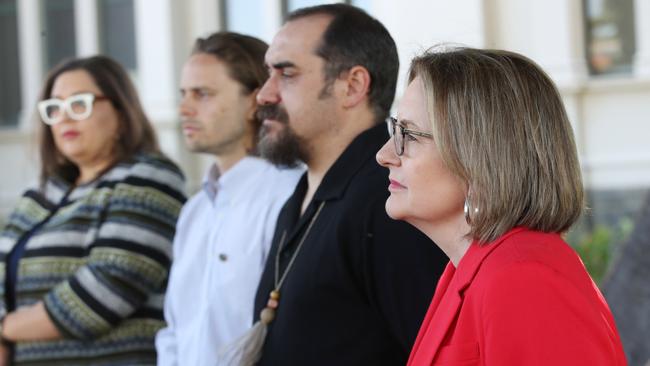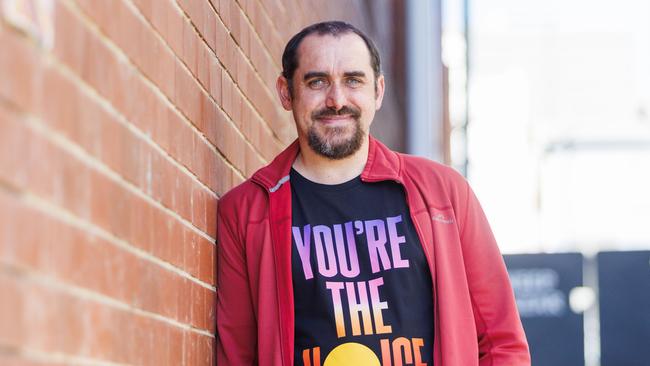Negotiations begin in Victoria for Australia’s first Indigenous treaty
Jacinta Allan says a treaty will allow for the ‘reset’ of the relationship between First Peoples and Victoria, with ‘tough conversations’ expected.
Negotiations will begin for Australia’s first treaty, with “tough conversations” expected between the Victorian government and the group tasked with representing the state’s First Peoples.
Premier Jacinta Allan has confirmed negotiations for a state treaty would begin “in the coming days”, and that while there may be “points of difference” her government is committed to a treaty outcome.
“Treaty is our opportunity at this point in our history to reset the relationship between the state of Victoria and the First Peoples of Victoria,” Ms Allan said on Thursday.
“We know that we need to get better outcomes and we know the outcomes right now are not fair, they’re not equal. Because throughout history, since colonisation, First Peoples in this state have been excluded from opportunity.”
The Premier said she would not be ruling anything in or out during her announcement and that a treaty would serve as a means to get practical change for issues such as housing, education, healthcare and strengthening culture for Indigenous people.
First Peoples Assembly of Victoria co-chair Rueben Berg said Aboriginal people need more decision-making powers.
“There’s going to be some tough conversations we’ll need to have, but we’re confident we’ll be able to have those conversations in a respectful way, and we’ll be able to deliver a treaty which will deliver powerful outcomes for our communities … and for all Victoria,” the Gunditjmara man said.

“If we want better outcomes, we need First Peoples with greater decision-making powers, greater roles within our society, and also to ensure that we can hold the government accountable to actually deliver on the promises they’ve made.”
Mr Berg said there was a “sense of urgency” in reaching an agreement and improving outcomes in housing, education, health and employment for First Peoples.
“It’s much more driven by the fact that so many of our elders have fought for this, have hoped for this to occur and we finally have the opportunity to make it reality,” he said.
Earlier this year, Mr Berg told a conference that the powers of state First Peoples Minister Natalie Hutchins should be handed to an elected Indigenous representative.
During her appearance before the Yoorrook Justice Commission in April, Ms Allan flagged the idea of embedding more First Nations history in the school curriculum.
She did not provide detailed responses when quizzed before the state’s truth-telling body about whether the government had set aside money in preparation for “treaty settlements” to allow the purchase of land.

Ms Allan and Treaty Minister Ms Hutchins will be responsible for treaty negotiations and have authorised officials from the Department of Premier and Cabinet to negotiate on their behalf when meeting with the First Peoples Assembly.
Yoorrook Justice Commission chair Eleanor Bourke said truth and treaty are “complementary processes”.
“The last 3½ years of truth-telling has helped tell the full story of our shared history in Victoria. It has also shown how past injustices continue to harm First Peoples today,” Professor Bourke told The Australian.
“Many of Yoorrook’s recommendations will be the subject of treaty negotiations. This will create transformational change for our people and a better shared future.”




To join the conversation, please log in. Don't have an account? Register
Join the conversation, you are commenting as Logout